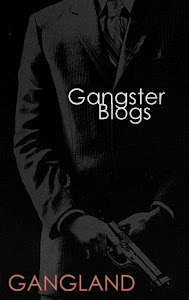French filmmaker and photojournalist Christian Poveda, known for his award-winning documentary about gang life in El Salvador, was killed last week. His death is a tragic reminder of the risks faced by journalists and other artists covering controversial stories and broadcasting unpopular views.Getting the Story Can Cost You Your Life
Poveda, whose 2008 documentary “La Vida Loca” (The Crazy Life) studied El Salvador’s Mara 18 street gang, was found dead yesterday inside a car north of the capital, San Salvador, reported the BBC.Marcos Aleman of the Seattle Post-Intelligencer called him “a victim of the extreme violence he was trying to bring attention to.”According to the BBC, during Poveda’s first visit to El Salvador in the 1980s, he photographed the country’s civil war. In the 1990s, after the war ended, he came back to El Salvador to raise awareness of the country’s escalating gang problem. According to local media cited by the Spanish news agency Efe, Poveda observed seven murders, three of which were highlighted in his film, the BBC also noted.Despite having firsthand knowledge of their brutality, Poveda was sympathetic toward the gangs of El Salvador. He felt that U.S. policies were responsible for their emergence and proliferation, according to the Los Angeles Times. In a video interview with the newspaper in April, Poveda explained that following the 1992 peace accords in El Salvador, the U.S. set El Salvadoran prisoners free and deported them.He said in the interview, “As savage as they can be, they’re people of their word … From the moment I understood that, I had no problems. I was never afraid of them.” According to the World Association of Newspapers, 70 journalists were killed in 2008, and 9 were killed in 2009. (These statistics were released in February).In 2004, an Islamic extremist killed the Dutch filmmaker Theo van Gogh. Pinned with a knife to his corpse was a letter threatening Somali-born activist Ayaan Hirsi Ali, his collaborator on a controversial documentary.
The film, titled “Submission,” documented the abuses borne by Muslim women. In the film, visible on the skin of women wearing transparent clothes are lines from the Quran that describe the physical punishments men are permitted to inflict on “misbehaving” women. Following van Gogh’s death, Hirsi Ali went into hiding.Roberto Saviano, author of “Gomorrah,” (a word play on Camorra, the name of a Neapolitan crime family) has lived like a fugitive for over two years, with bodyguards as his only companions. After the film based on his book was released, his enemies vowed to kill him and his bodyguards by Christmas. So far they have not succeeded.
Background: One war ends and another begins
During the 1970s, a faltering economy and an oppressive regime, coupled with social disparities, sparked a 12-year civil war between the government of El Salvador, governed by the right-wing National Conciliatory Party (PCN), and leftist guerrillas.
As the L.A. Times noted this past April, the peace agreements of the 1990s that brought El Salvador’s civil war to a close also forced a large number of gang members in the U.S. to be deported to El Salvador. High unemployment and poverty led to their rapid expansion “into transnational ‘super-gangs’,” wrote Rocky Delgadillo, Los Angeles city attorney and L.A. Times columnist.But following the recent election of Mauricio Funes, the first left-wing president in 20 years, many critics now see hope for reform. Still, University of Texas photojournalism professor Donna De Cesare told News Photographer magazine, “If this crime [Poveda’s death] remains another unsolved Salvadoran murder, the cost to Salvadoran journalism and to the faith in change engendered by the recent elections there will be devastating.”According to the BBC, Salvadoran President Mauricio Funes has authorized “a full police inquiry.”
GANGWORLD CUSTOM SEARCH

Custom Search
Subscribe to:
Post Comments (Atom)














0 comments:
Post a Comment